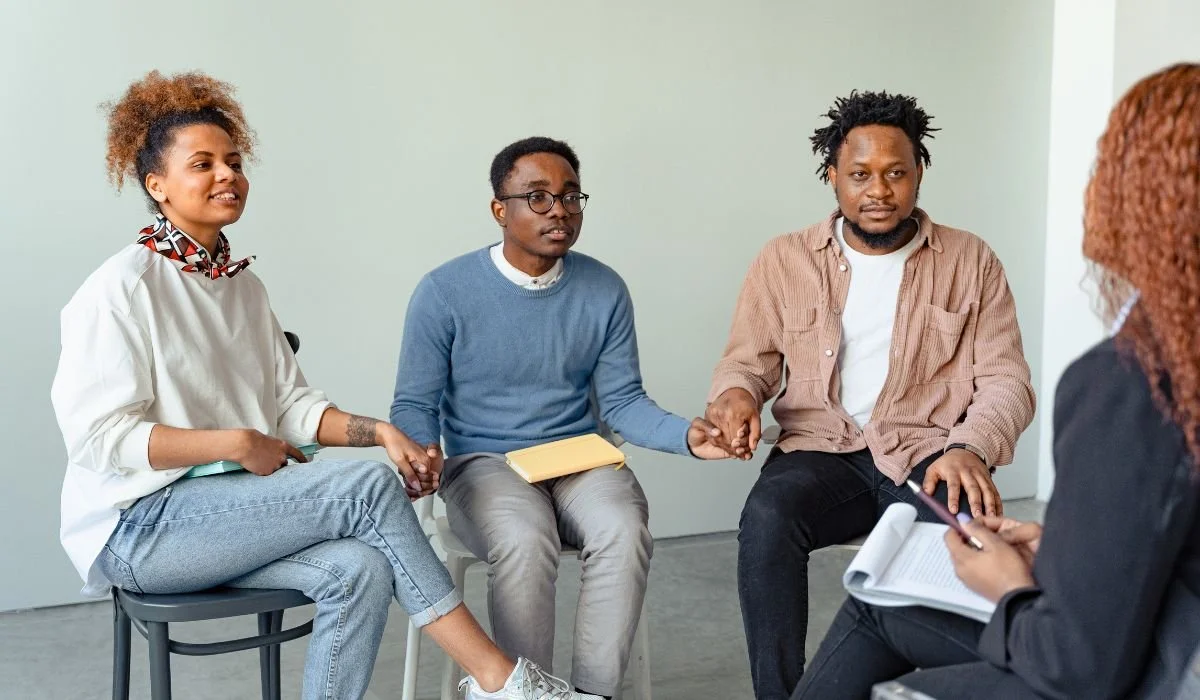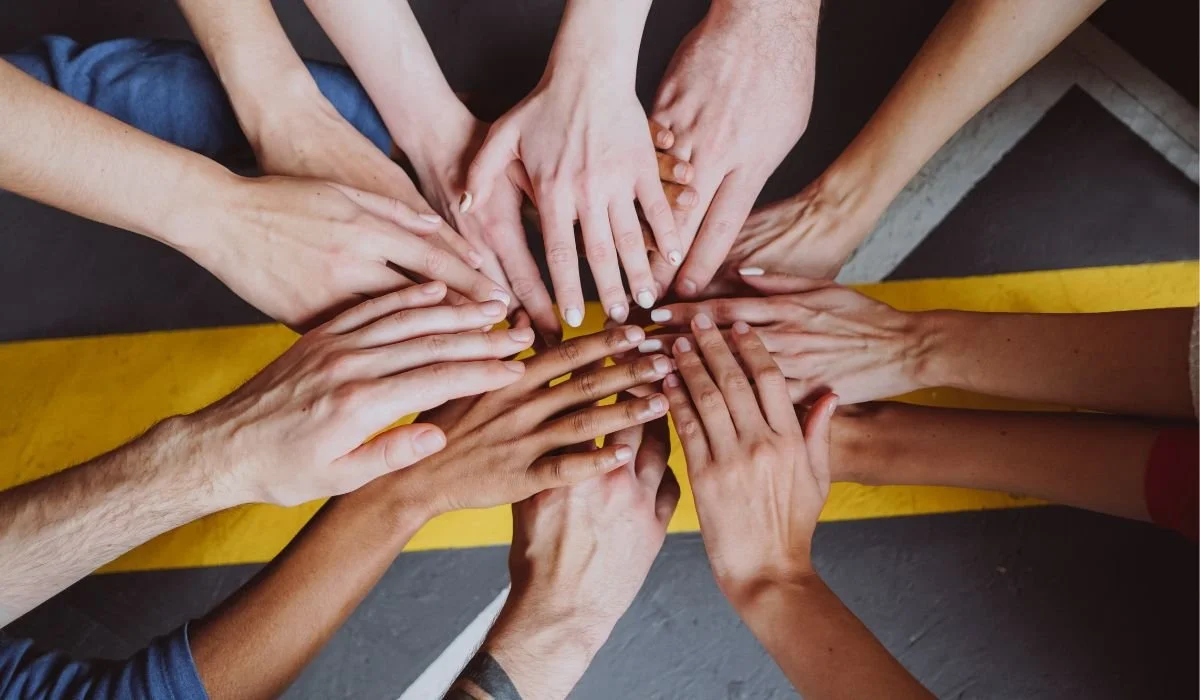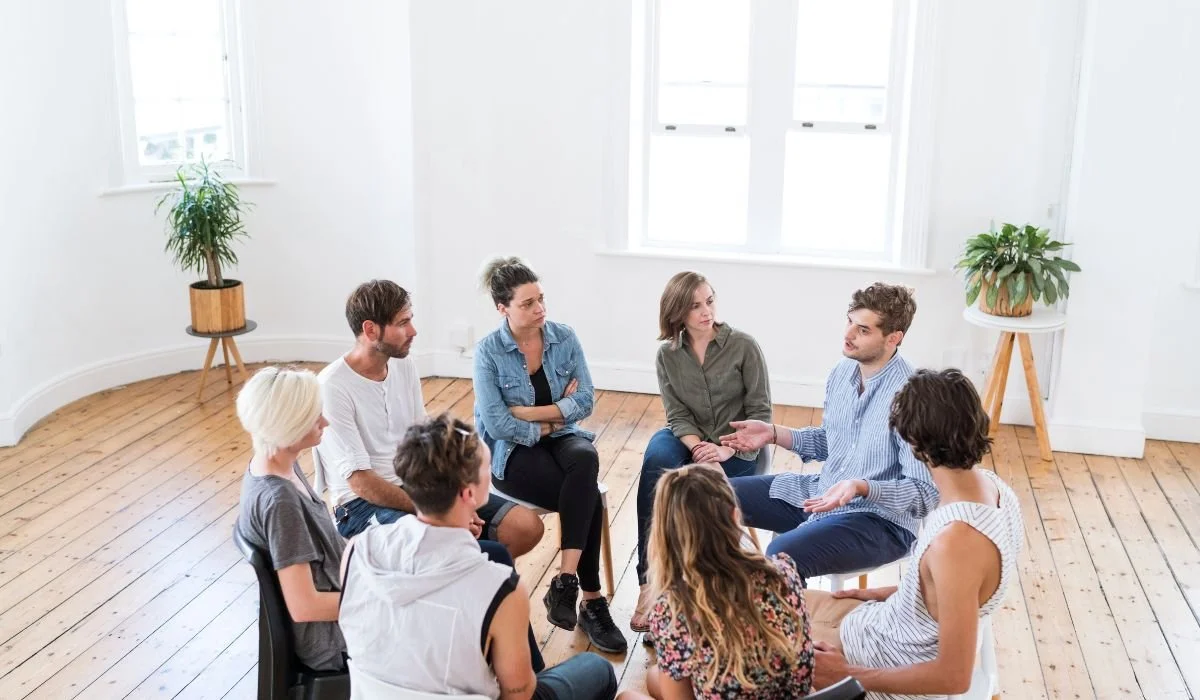Group Therapy
Finding support for mental health can feel overwhelming. Many people think they have to face struggles alone, but that is not true. Group therapy in Salt Lake City offers a safe and supportive environment where people can connect, share, and grow together.
In a group setting, you can meet others who face similar challenges. By listening to their stories, you may realize you are not alone. Through guided group discussions, you can practice new skills, improve relationships, and build strength to face life’s challenges.
What is Group Therapy?
Group Therapy is a form of counseling where a trained therapist works with several people at the same time. Instead of one-on-one sessions like Individual Therapy, group therapy uses connection and community as part of the healing process.
In these therapy groups, people talk about their experiences, feelings, and struggles. They also learn new coping tools such as DBT skills, Distress Tolerance, Interpersonal Effectiveness, and Emotion Regulation.
Benefits of Group Therapy
Group therapy offers many benefits that go beyond individual sessions:
Supportive Environment – A safe place where everyone respects one another.
New Perspectives – Hearing from others helps you see problems in a new way.
Skill Development – Learn practical life skills for daily stress and relationships.
Reduced Isolation – Feel less alone by connecting with people who understand.
Practice Communication – Improve interpersonal dynamics and relationship skills.
Healing does not have to happen alone. In fact, group therapy helps people grow by sharing the journey with others.
Types of Group Therapy
Different groups are available depending on your needs. Each group is designed to fit specific goals and concerns.
Recovery Group Therapy
For those struggling with substance abuse or Substance Use, recovery groups provide tools, accountability, and hope.
Trauma Therapy and PTSD Recovery Groups
Groups focused on trauma use methods like Trauma Focused Cognitive Behavioral Therapy (TF-CBT) and interpersonal process therapy. They support survivors of sexual trauma, domestic abuse, or traumatic events.
Therapy & Specialty Groups
DBT / Emotional Regulation: Emotion regulation, distress tolerance, interpersonal effectiveness; ideal for social anxiety, mood swings, or negative thought patterns
Psychoeducational / CBT Groups: Identify and replace harmful thinking patterns with healthier ones
Women’s Groups: Support for postpartum mental health, family stress, or grief
Family & Couples Groups: Improve communication, attachment, and relationship dynamics
Specialty Groups:
Art Therapy: Healing through creativity
Recreational Therapy: Learn skills through play and activity
Teen DBT Skills Group: Support for teens with emotional struggles
Parents Like Me: Guidance for parents supporting their children
Faith Transition Groups: Support navigating changes in belief or spiritual identity
Integration Circles: Processing experiences with ketamine or other plant medicines
Mind-Body Groups: Sound healing, meditation, and yoga for emotional and physical well-being
Virtual and In-Person Options
We offer both virtual and in-person group therapy sessions throughout the year. Group sizes are limited to keep space safe and supportive. Whether you prefer meeting face-to-face in Salt Lake City or joining from home, both options give you access to healing and connection.
Find out more
Click here to inquire about the types of groups you’re interested in, and click here to view our current open group offerings.
-
Group therapy helps people see that they are not alone. It allows them to share struggles, learn coping tools, and practice interpersonal skill development in a safe place.
-
Both have benefits. Individual Therapy is private and personal, while group therapy provides community, connection, and feedback from others. Many people do both.
-
There are groups for substance abuse recovery, trauma therapy, grief reactions, women’s health, teens, couples, and psychoeducational groups like CBT programs.
-
Most groups are small, often 6–12 people. This allows for trust, deeper conversations, and safety.
-
Yes. Many people feel nervous at first. Group leaders create a supportive environment where you can share at your own pace. Listening is also an important part of the process.
FAQs About Group Therapy
Therapy Services
Begin Your Healing Journey Today
Contact us today for more information and we will get back to you as soon as possible.


